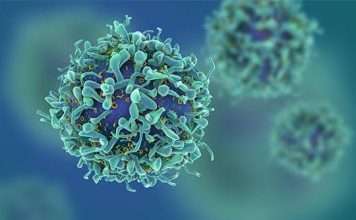Dr. Habeebu Muhammad, the head of the Nigeria Sovereign Investment Authority-Lagos University Teaching Hospital, Idi-Araba, Cancer Centre, disclosed that Nigeria grapples with a staggering 17,000 new cases of cervical cancer annually.
This disease is the third most prevalent among women in Nigeria, causing a significant number of cancer-related fatalities among women between 15 and 44 years old.
Dr. Muhammad underscored the preventable nature of cervical cancer, encouraging individuals to seek prompt medical attention if they exhibit symptoms, and debunking the misconception that cancer is always a terminal illness.
He attributed most cancer fatalities to delayed medical interventions, often when the disease has reached an advanced stage. Dr. Muhammad emphasized the critical importance of early detection in enhancing survival rates and reducing the substantial economic burden of cancer treatment.
In light of the alarming annual incidence of new cancer cases in Nigeria, Wakadaily learnt that, Dr. Muhammad advocated for enhanced healthcare access and improved patient care.
Muhammad mentioned, “We have about 102,000 new cases of cancer annually as of 2023. About 15 per cent of this is cervical cancer. So that is about 17,000 new cases of cervical cancer annually.”
The director encouraged Nigerians to adopt a wholesome lifestyle to counter the rampant and deadly disease sweeping the globe.
Cervical cancer, a malignancy affecting the cervix, ranks among the top four most prevalent cancers affecting women worldwide.
The disease’s impact continues to intensify, placing an enormous burden on individuals, families, communities, and healthcare systems globally.
According to the World Health Organisation, cancer claims a staggering 10 million lives annually, with a disproportionate 70% of these fatalities occurring in low-to-middle-income countries, including Nigeria.
Muhammad stressed the vital importance of regular health check-ups, emphasizing that early detection is the key to conquering this global health crisis.
He noted that women are disproportionately affected by breast and cervical cancers, while men are more likely to develop prostate cancer. In 2023, the Federal Government launched an initiative to incorporate the Human Papillomavirus vaccine into its routine immunization program, aiming to shield teenage girls from cervical cancer and related diseases.
This ambitious effort seeks to reach a staggering 7.7 million girls with life-saving vaccines, the largest single-round HPV vaccination drive in the African region. Although the exact causes of cancer remain unknown, 14 HPV strains have been identified as responsible for nearly all cervical cancer cases.
According to the World Health Organisation, HPV types 16 and 18 account for approximately 70% of cervical cancers and pre-cancerous lesions.
Moreover, HPV has been linked to various other cancers, including those affecting the anus, vulva, vagina, penis, and oropharynx. If comprehensive measures are taken, including vaccinating 90% of girls against HPV, screening 70% of women, and providing treatment to 90% of women with the disease, cervical cancer could become the first cancer to be eradicated, according to WHO estimates.
Prof. Ifeoma Okoye, a distinguished oncologist and founder of Breast Without Spot Foundation, highlights the sobering reality that cervical cancer claims the lives of 23-28 women daily in Nigeria.
